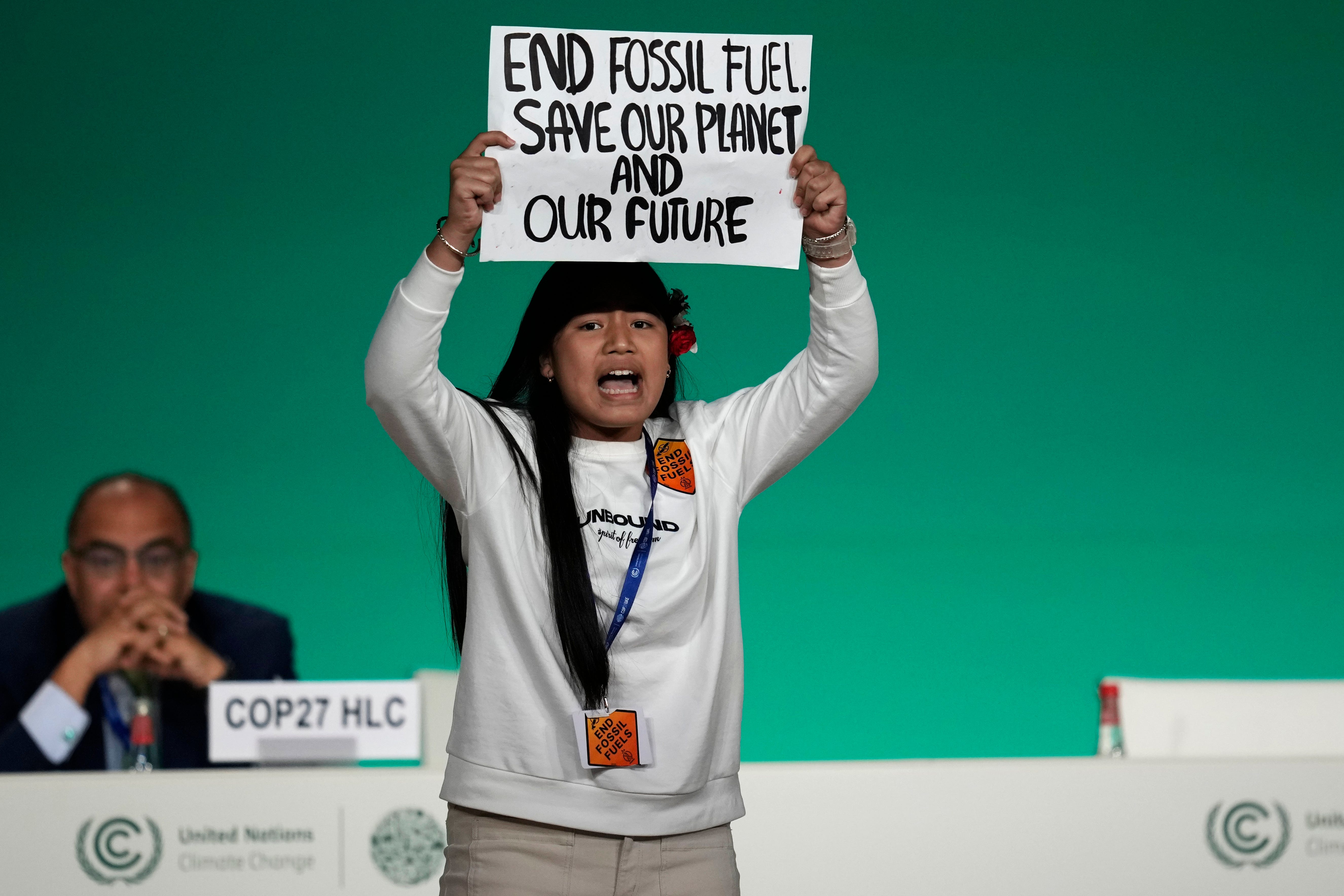Fossil fuel companies at Cop28 set to produce 25 billion barrels of oil
The analysis comes as a draft text of the final agreement has been met with fury for allowing room for more oil and gas production.

Fossil fuel companies invited to the Cop28 climate talks are projected to produce more than 25 billion barrels of oil this decade, analysis shows.
It comes amid a furious reaction from small island states and NGOs to a draft text of the summit agreement which allows for continued production of oil and gas.
By analysing industry data from Rystad Energy, campaign group Global Witness found that companies present at the negotiations plan to invest nearly 800 billion dollars (£636 billion) in hydrocarbons by 2030.
Use of fossil fuels is the main reason why the Earth’s climate is heating up and creating a more hostile environment for human beings.
The global average temperature has already warmed by around 1.2C above what it was before the Industrial Revolution, and countries have committed to stopping this from rising above 1.5C.
Cop’s failure to agree to phase out the fossil fuels that are wrecking the planet and making people poorer has the industry’s fingerprints all over it
Current policies in place worldwide would take the Earth’s temperature to 3C by the end of this century, with the UN and the International Energy Agency (IEA) along with countless scientists and NGOs saying that fossil fuel production must decline rapidly in order to meet this and avoid catastrophic climate change.
The draft text at the current negotiations in Dubai has been criticised for being too weak, in that it suggests countries “could” triple renewable energy production and phase out “inefficient” fossil fuel subsidies, but does not describe these measures as necessary.
Sir Alok Sharma questioned on the social media site X who the text is meant to serve, while the Marshall Islands’ delegate said his country will not “go silently to our watery graves”.
Al Gore wrote that Cop28 is “on the verge of complete failure” and that the draft looks as if it was written by petrostates “word for word”.
Global Witness said the text and its analysis show how Cop28 has been cop-opted by the fossil fuel industry, with its president Sultan al-Jaber CEO of the Abu Dhabi National Oil Company (Adnoc).
It found 17 other senior representatives from major fossil fuel companies at the talks – including ExxonMobil, BP, Occidental and ENI.
A Cop28 spokesperson said: “This is the most inclusive Cop ever, with over 100,000 participants.
“We have invited stakeholders from across our action agenda, including the oil and gas industry, because broad collaboration is the only way we can design and deliver an agreement that keeps 1.5C within reach.”
Dozens of other fossil fuel representatives were also invited to Cop28, which for the first time has released a list of people the host nation has asked to attend.
Mike Davis, Global Witness CEO, said: “When climate talks are flooded by thousands of fossil fuel lobbyists, it’s no surprise that those talks flop.
“Cop’s failure to agree to phase out the fossil fuels that are wrecking the planet and making people poorer has the industry’s fingerprints all over it.”
Previous analysis from the NGO found there to be 2,456 delegates linked to the fossil fuel industry at the conference, a record attendance.
All energy transition scenarios, including those by the IEA and Rystad, acknowledge that some level of oil and gas will be needed to meet future energy demand
Adnoc called the Global Witness analysis “inaccurate”, with a spokesperson adding: “We have clearly stated that we are growing our production capacity from around 4.65 mb/d (million barrels a day) to five mb/d by 2027.
“This represents a 7% increase in production capacity.
“All energy transition scenarios, including those by the IEA and Rystad, acknowledge that some level of oil and gas will be needed to meet future energy demand.
“We are producing some of the world’s least carbon intensive oil and gas and we are further reducing our carbon intensity by 25% by 2030 while making an initial investment of 15 billion dollars (£11.9 billion) to decarbonise our operations.”
Bookmark popover
Removed from bookmarks